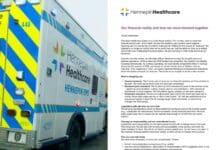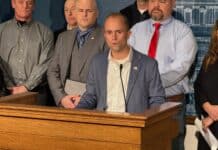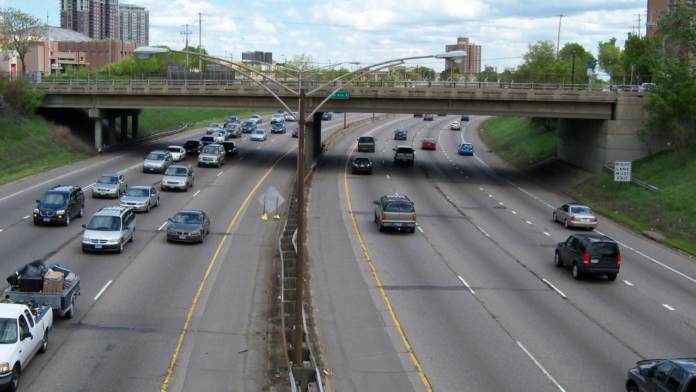MINNEAPOLIS – Twin Cities traffic congestion has been getting worse in recent years, with the Minnesota Department of Transportation (MNDOT) labeling more than 23 percent of the metro area’s highways as congested.
This could be a big problem in upcoming years, as that lack of free travel typically negatively impacts an area’s economy.
“Traffic congestion is going to be a barrier for economic development because it creates friction among activities. It’s going to harm the economy,” Professor Jason Cao told Alpha News. “On the other hand, traffic congestion is an indicator of business activity in itself.”
Cao is a professor at the University of Minnesota’s Humphrey School of Public Affairs. He specializes in urban planning, transportation planning, and sustainable development. Cao noted that in weaker economies, traffic congestion on the whole decreases.
“In 2009 I didn’t really see any congestion, but that was during the recession,” Cao said.
Economic centers being the hotbeds of traffic congestion is noted by politicians in the state as well.
“I think the biggest transportation issue [in Minnesota] is congestion,” Hennepin County Commissioner Jeff Johnson, a 2018 GOP gubernatorial candidate, said. “There’s not congestion everywhere but there certainly is in the Twin Cities and lots of our population centers.”
Johnson is critical of MNDOT and the Met Council failing to focus on the issue of transportation. MNDOT spent just over one percent of its budget directly working to relieve congestion issues on Minnesota roads in 2015 according to the Minnesota State Highway Investment Plan. Johnson thinks this is far too low.
“There should be significant focus on congestion relief,” Johnson told Alpha News, “Clearly if they’re just spending one percent on it it’s not a focus at all.”
Cao cautions that it is likely both logistically and fiscally impossible for the state to build its way entirely out of congestion. He believes a mix of solutions is necessary to free up Minnesota roads again.
“We need different ways. There is no magic, we need to address this from different perspectives,” Cao said.
“Saying that we’re gonna solve congestion entirely in the Twin Cities by abandoning transit and just building roads, I don’t think that’s realistic,” Johnson said. “But if we’re going to spend money on transit, let’s do it in a way that is efficient with taxpayers money and to me that means buses.”
Buses and trains each have their own drawbacks and benefits according to Cao. He believes that the construction of train lines for transit use shows a dedication to permanence that business owners like, and that development along the line may result from new train line constructions.
“The train is the most reliable,” Cao added. “Reliability could be very important for some situations, and the train is more comfortable for riding. It can attract wealthier people, middle class people. To some extent the train has some benefits in those regards.”
Cao also pointed out that buses have the huge advantage of being much less expensive than trains, in addition to being much easier to reroute if demand changes. Johnson emphatically concurred with this opinion.
“We could fund a world class bus system for a fraction of the cost of trains,” Johnson said. “The thought that spending billions on trains that take one to two percent of cars off the road will make a difference [in traffic congestion] is just not realistic.”





